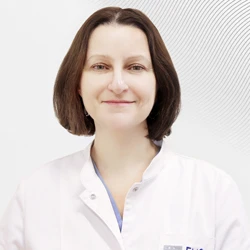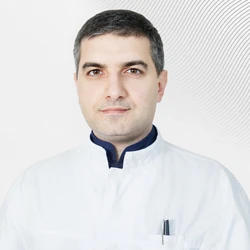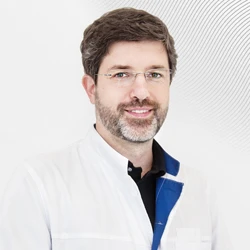Intensive care patients are patients with serious illnesses and injuries after complex surgical procedures and anesthesia. And if most of us know what happens in hospital rooms, then intensive care and intensive care are usually always closed to prying eyes. Visits to the intensive care unit are usually prohibited. However, any of us is sure that when a person is in critical condition, it is very important to have a loved one nearby.
The head of the Intensive care Unit (ICU) tells about visiting patients with relatives and friends EMC Elena Aleshchenko:
Why visit ICU patients?
In fact, a patient in the ICU rarely needs the presence of relatives. But for many people, it is very important to make sure that everything is okay with a loved one, to be with them for at least a minute, and we understand this perfectly well. After anesthesia and surgery, the patient does not need additional care from relatives: he is fully provided by the medical staff of the department. Moreover, most people cannot always adequately perceive the appearance of a loved one who is connected via wires and "tubes" to devices and monitors, and nurses are constantly scurrying around him.
It should be understood that a person who wants to visit a patient in the ICU must be prepared. Before allowing a visit, we talk in detail with relatives so that they correctly perceive everything that is happening with their loved one - of course, they have questions. Admittedly, we manage to find a common language with most of the visitors. Then, being in the ICU, they do not interfere with the treatment process. But in fact, the best time to see your loved ones is when the patient is close to recovery and ready to be transferred to a hospital.
However, relatives should keep in mind that the most important thing for us is the patient's opinion about visits to both the ICU and the hospital. We also follow the patient's wishes about who can be provided with information about his health status, which are recorded in the inpatient's medical record.
How should visits to the NICU be organized?
Intensive care is a department where there is a special sanitary and epidemiological regime dictated primarily by the interests of patients. We do not allow you to enter the department in outerwear and outdoor shoes. We will ask you to change into disposable shoe covers and a bathrobe.
When is the best time to go to the ICU?
Of course, all visits to the ICU must be coordinated with the doctors and the head of the department, and, of course, the main thing is the patient's desire. Intensive therapy is also a treatment, but it is many times more active, in simple terms, and it is aimed at restoring vital functions (respiration, blood circulation, metabolism) disrupted as a result of surgery, anesthesia, trauma, or serious illness. There is a lot of sophisticated equipment that monitors the condition of individual organs and systems and supports the vital functions of the body. In addition, we have a lot of invasive procedures, so the doctor will tell you the most convenient time to visit the patient. We are always in touch with the relatives and friends of our patients.
How much time can a visitor spend in the ICU?
If you visit someone in the ICU, you need to understand that not only your relative is here, but also other patients. Everything that happens here with the patient takes place in the presence of many people - the medical staff and the patients themselves, so you need to be prepared for the fact that you will witness not only medical events, but also meals, hygiene procedures, and toilets. In our department, it is possible to mark the area around the patient's bed with a screen, which allows you to create some personal space. However, this restricts free access to the patient and may prevent medical staff from providing the necessary care, so we set the number of visitors in advance and ask you not to stay too long in the department.
How long can a patient stay in the ICU?
The more severe the patient's condition, the longer he stays in the ICU. We need a certain period of observation, monitoring of vital signs, round-the-clock medical and nursing posts.
For simple surgical procedures, we monitor the patient from one to several hours, for large operations - a day or more, and transfer him to the hospital only after complete stabilization of the function of organs and systems. If the patient's condition requires intensive therapy and replacement of vital functions, he remains in the ICU until full recovery. It can be a lengthy process. But we explain to the patient (as much as possible) and his relatives that there is no need to force events, there is no need to rush back to the hospital, because intensive care is carried out in the ICU. We need to make sure that nothing threatens our lives.
The ideal situation
There is no "Do not enter" or "No trespassing" sign on the doors of our department and there never will be. The doors of all branches in the EMC are open to visitors (except for the operating unit, which is sterile). However, we ask you to adhere to the time of visits or coordinate your visits with the doctors of our department. After all, we have one goal – to help sick people in a critical situation. It's not easy, let's try to combine and coordinate our efforts.
Was this information helpful?
Questions and answers
Dermoid cyst and pregnancy
An ultrasound revealed a mass in my left ovary during the first pregnancy. I was told that it is a dermoid cyst. Five years have passed since then. I gave birth to a second child. An ultrasound was performed annually. There were differences in size, but not significant. Since I’m going to have the 3rd child, another
ultrasound was done today. The doctor said that the cyst had increased. I am concerned about it. Don't know where to start. What tests are needed? Thank you.
...more Surgical treatment is strictly indicated in your case given the long history of the mass in the ovary and its rapid growth in recent times. In our clinic, we perform such an intervention laparoscopically through 3 small punctures. Patients go home next morning after the surgery and may return to work after 3 days.
This surgery must be as delicate to preserve healthy ovarian tissue (considering your reproductive plans) as radical at the same time to remove the mass together with the capsule. At the preoperative stage an expert level ultrasound with Doppler is required, as well as blood tests for Ca-125 and НЕ-4 tumor markers. The decision concerning the necessity of FEGDS and colonoscopy is taken based on the results of these tests.
...more
Total knee replacement
My mom suffers from gonarthrosis for the past three years. Despite treatment by injections the pain is still present. MRI revealed a meniscal tear in the posterior horn, the presence of small bony osteophytes on the patella, a small amount of fluid in the joint cavity (signs of exudative synovitis were detected)
joint space is asymmetrically narrowed in the medial segment. The pain is ongoing but the knee remains flexible. Tell me, please, whether the surgery is contraindicated for meniscal tear in case of arthrosis? Is it possible to do an arthroscopic surgery on the meniscus in our case or it should be «major» surgery? And what would you advice concerning knee replacement for the patient in the age of 57? What is the life time of the artificial joint?
...more It is necessary to make an X-ray of the knee in direct projection in standing position. If it turns out that there is no medial cartilage in the medial area, then the knee replacement is the only solution. The age of 57 is normal for the prosthetics. Modern artificial knee joint (when properly placed of course) will
serve for a lifetime. You can make an appointment via phone +7 (495) 933-66-44.
...more 
Kardanov Andrey
07 September 2016
Pain
I am 19 years old, professionally engaged in weightlifting. I did an arthroscopy of both knee joint a year ago, now feel pain in them and it prevents me from training at full capacity. I visited a traumatologist, and «osteoarthritis of 1 degree» was diagnosed. Could you advise me some medicines or anything else to
relief the pain? Thank you very much for the answer!
...more
First of all you should undergo an MRI and find out what was done at arthroscopy; if it’s really an arthrosis of 1 degree, hyaluronic acid injections are possible and physiotherapy is not required. Anyway, you are always welcome to consultation for thorough examination.
Question to Dr. Yakobashvili
Tell me, please, at which age child's hearing should be checked-up if we were informed at the hospital before discharge that one ear does not hear. At the moment the child’s age is 1.5 months. Thank you.
These tests done in the hospital are often false negative. Hearing can be tested now, it is necessary to make an appointment to the audiologist.
Cought
A child of 11 years old, suffers from cough for more than six months. The cough is dry, sometimes attack-like, mainly begins during the day, and often occurs before sleep. There is no cough at night. CBC is normal, glucose is 4.16, total IgE 111.80, Toxocara, Ascaride are negative, Cytomegalovirus, Mycoplasma are
negative, PPD test is negative as well. A chest x-ray is normal. We have already consulted with a therapist, otolaryngologist, pulmonologist, neurologist, gastroenterologist... the cough is still present. What should we do?
...more First of all, there are no results of whooping cough testing among the results provided above. The disease cannot be ruled out, even if your child was vaccinated. The blood test for antibodies against the whooping cough germ is required (blood test for class M and G antibodies against Bordetella pertussis). Second,
even a slight increase in class E antibodies is a reason to visit an allergist and to perform an evaluation of respiratory function with bronchodilator. This method will detect a latent bronchial spasm in your child. Even if the results of the test will be normal, allergologist mast rule out the allergic nature of the cough even if it's not obstructive syndrome. Third, this cough can be due to gastroesophageal reflux. It is difficult to draw any conclusions having no data of gastroenterologist’s consultation. 24-hour acidity monitoring of the stomach and esophagus is carried out to confirm or exclude the presence of reflux. Fourth, you didn’t mention whether x-ray of nasopharynx and paranasal sinuses was done. Perhaps, after all, the pathology is associated with ENT organs.
...more 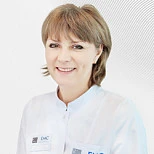





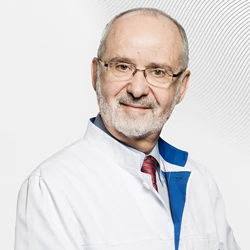
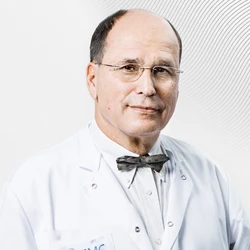
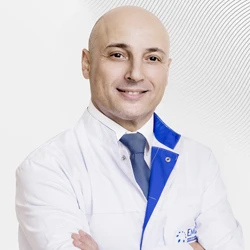

.webp)
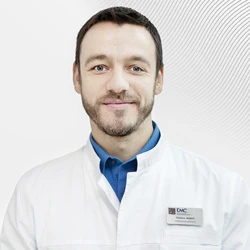
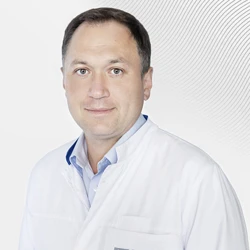
.webp)

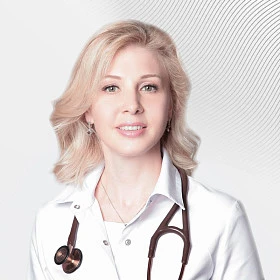
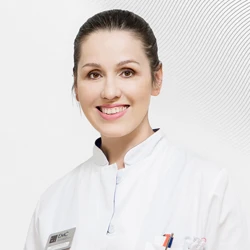
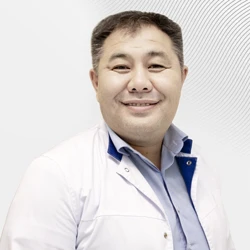
.webp)

.webp)

